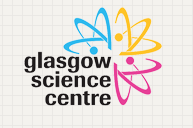By Alastair Delaney, Chief Operating Officer and Director of Inspection
Maybe that’s a cliché, but we are certainly seeing huge changes across all sectors of education in Scotland at the moment. And as Education Scotland’s Director of Inspection, it is my job to ensure that inspection takes account of all these changes, and remains fit for purpose over the next three to five years, and beyond.
So that begs the question – what is the purpose of inspection? Education Scotland is clear that the purpose is three-fold:
- to give assurance to stakeholders (notably parents when we are talking about school inspection) that learners are getting the high-quality education they deserve – and if that is not the case, to ensure improvements are made as soon as possible;
- to build capacity for improvement through professional dialogue with practitioners and sharing good practice; and
- to provide advice to education policy-makers, based on first-hand observation of learning and teaching, and of what is working well in practice.
Education Scotland evaluates education in a wide range of sectors and settings across Scotland. Our inspection and review programmes include: early learning and childcare settings; primary, secondary, all-through, special and independent schools; educational psychology services; strategic scrutiny at local authority and community planning partnership level; public and private colleges; community learning and development; voluntary services; teacher education; careers information, advice and guidance: and prison education.
The review we are currently undertaking includes all of these sectors and settings – and clearly it is important that we involve our stakeholders in considering how we might inspect in future. We have no firm proposals for change at the moment, as we are keen to explore a wide range of ideas for possible future approaches to inspection and hear the views of everyone who has an interest.
The highly successful Scottish approach to quality improvement in education attracts much attention internationally. It is based on our national consensus that: educational establishments and services evaluate the quality of their own work and plan for improvement where necessary; local authorities support and challenge the establishments and services in their areas to improve; and that these processes are backed up by rigorous, external inspection carried out by Education Scotland’s inspectors. These approaches are perhaps something that we take for granted – but they are recognised as world-class.
So why do we need to review what we do?
If we want to remain world-class, on-going review of our approaches is essential. Since I was first appointed as HMI in 2000, there have been massive changes in how we inspect. And this process of change needs to continue.
In recent years, our approaches to inspection have recognised the growing strengths in self-evaluation across all sectors of Scottish education. For example, since 2008 we have started school inspections by asking headteachers to tell us about their strengths and how they are working to bring about improvement, then planning our inspection activities accordingly.
Our current inspection models give high priority to the user-focus agenda by involving staff, parents, learners and community partners in the inspection process. They emphasise the need for inspection teams to establish and maintain positive relationships with the staff in establishments and services being inspected, and to work in partnership with staff to ensure the process is a positive one and leads to improvement – the “with not to” agenda.
There have been significant changes to the delivery of education through such developments as Curriculum for Excellence and GIRFEC. The Developing Scotland’s Young Workforce report brings us new challenges across all sectors relating to the skills for work agenda. And then we have the Children and Young People’s Act, the Statement of Ambition on adult learning, the National Youth Work Strategy and college amalgamations. We also need to take account of societal changes in the use of technology, changes in demographics, the sustainability agenda and the challenge of ensuring greater equity in the outcomes of Scottish education – to name but a few of the wider issues we need to take into account.
At the same time as this review of inspection, we have started work to produce the next edition of How good is our school? and we want to get your views on this important development too.
We have already held meetings with key stakeholders, including a meeting of a new External Reference Group in September and a seminar at the Scottish Learning Festival. A series of regional conversation events begins in November.
You can find out more about this consultation by visiting the Future approaches to Inspection and Review pages on our website.
I look forward to hearing from you!


























